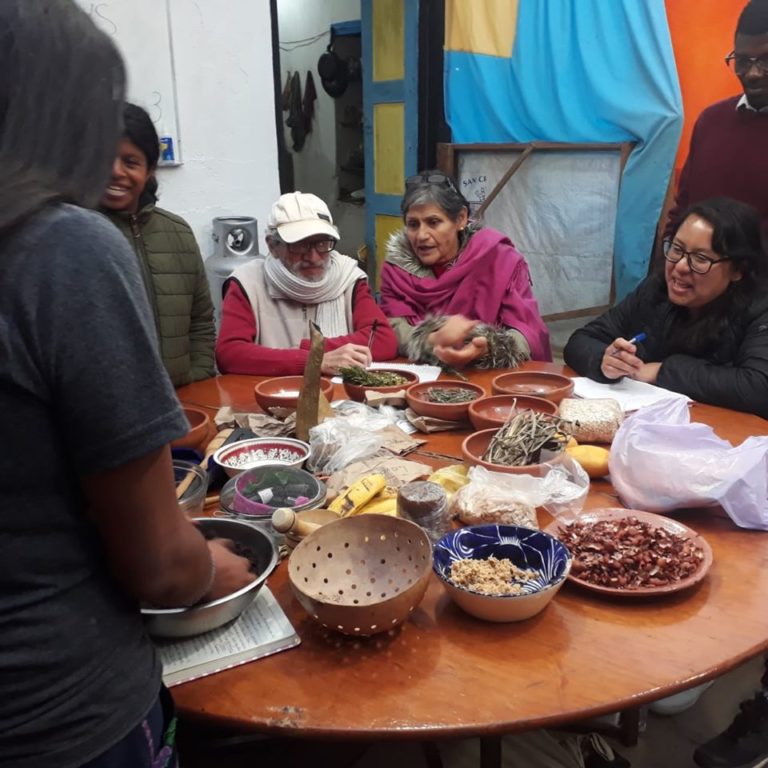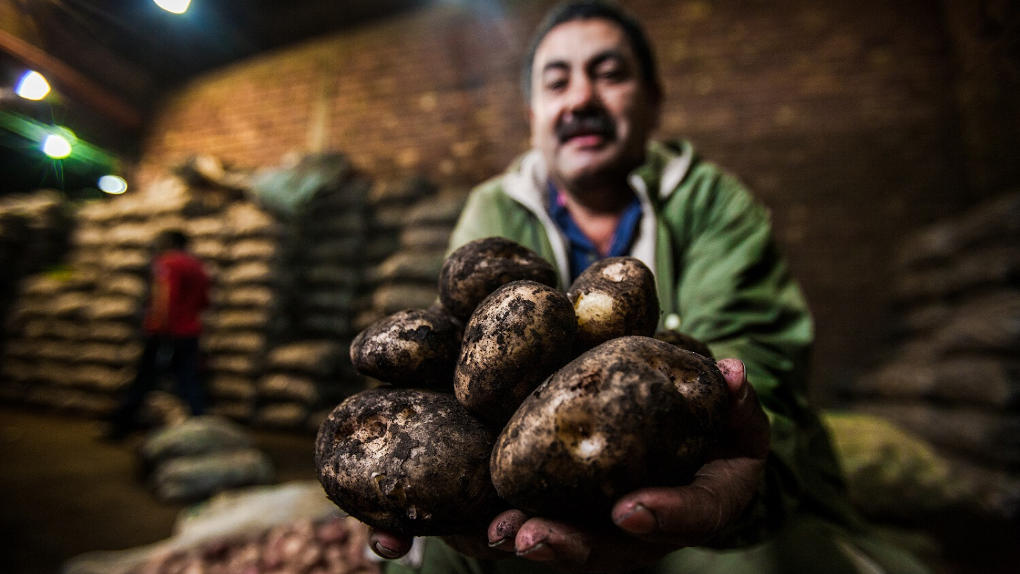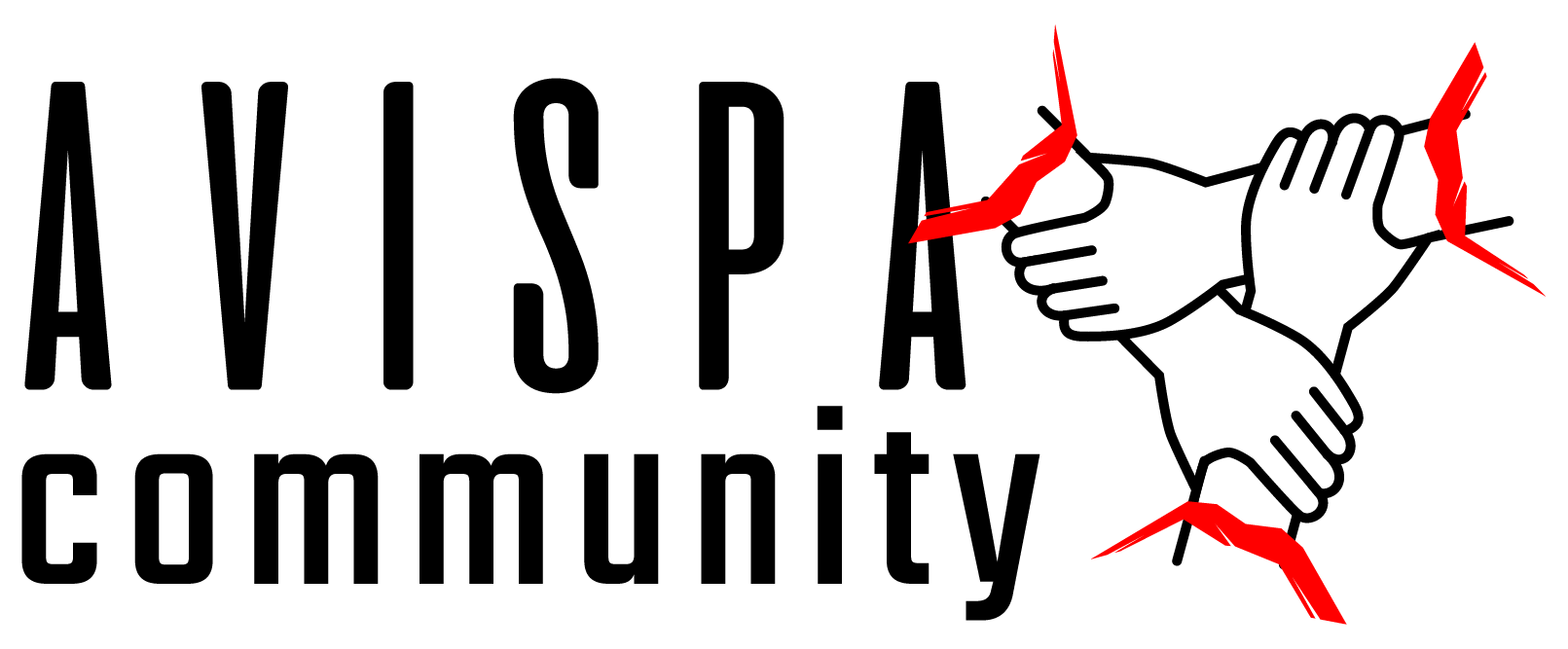Originally published in Spanish by Eugenia López. Translated by David Milan.
Barter, an ancestral practice for many peoples, consists in the necessity-based exchange of products, knowledge, or services for different ones. The transaction takes place between goods considered of equal value, without using money. It can happen between neighbors, families, communities, or whole peoples.
Historically, barter has given people access to a variety of products that other regions produce but their own lands do not, due to differences in climate and knowledge.
Although its use declined significantly with the introduction of money and the capitalist system, it never went away. Today, with the crisis provoked by the coronavirus pandemic, it’s having a strong resurgence in many parts of the American continent.
Examples of barter are varied: it’s used in rural and urban zones, between individuals, neighborhoods, communities, or even more officially, with the direction of authorities. These practices are allowing thousands of people to survive and resist amid the pandemic.
Ecuador
Just 15 days after the declaration of a state of emergency on March 16, this ancestral form of exchange has become commonplace between communities in the mountain, coastal, and Amazonian regions.
According to a report by the newspaper El Comercio, faced with the lack of money, mountain communities in Bolívar province are exchanging food supplies with neighboring regions. They send onions, potatoes, carrots, parsley, cilantro, and medicinal plants from the mountains, in return for plantains, oranges, and cassava, crops from the subtropical zone.
“The spirit of barter is that it has to be of equal value. There shouldn’t be mistrust or lingering doubts that one person got more and the other less”, commented Medardo Chimbolema, Mayor of Guaranda. A larger food exchange with other provinces is being planned from there, despite fear in the communities of the possible spread of Covid-19.
In Ecuador some barter has also been coordinated through traditional community authorities. This is how the mountain province of Tungurahua has been organizing exchange with the coastal provinces of Guayas, Esmeraldas, and Los Rios. From the mountains come avocados, figs, tomatoes, chard, spinach, and medicinal plants, while people from the coast mainly send limes, rice, cassava, squash, and plantain.
Barter between provinces arose from the increase in prices at the markets and the complexity of the administrative processes for receiving aid.
Argentina
In the Buenos Aires region, barter clubs began in 1995 as a system of moneyless exchange, Federico Rivas Molina told the newspaper El País.
When the 2002 economic crisis hit, leaving hundreds of thousands of Argentinians in poverty, bartering knowledge and networks consolidated into 6,000 barter clubs in a web that reached more than two million people.

Now, under full quarantine, exchange is happening again, as is the case in the small city of Ensenada, populated by lower and middle class families, middle-income workers, and many who live hand to mouth in the informal economy.
Faced with the impossibility of many people meeting in the same place, the participants have had to reinvent things, and so they started using social media. Daniel Branda, who coordinates one of the three barter clubs in the area, says that “in the first phase we shut down everything, thinking we’d be starting back up in two weeks. Later our problem was that people couldn’t gather in the club, because there are 50 participants in each one. So we reactivated barter-by-order”.
Now, members of the group take orders through cell phone messages and deliver them to a meetup point, avoiding gatherings to lower the risk of Covid-19 contagion.
Mexico
In Mexico City, artisans have also fallen back on barter to survive the quarantine, helping each other out. “The situation didn’t allow us to go out and we stayed home during the quarantine, but we couldn’t stay put any longer. We had to go out and find a way to help each other and help other people,” Susana told Efe news agency.
The Mexican craftswoman and her mother commute from Ajusco, where they live in a community of artisans, to the Narvarte neighborhood to offer their crafts woven from palm.
“It’s a simple and humble community where artisans and non-artisans live, but we have all helped each other out. Everything we’re receiving and what we’ve been brought we have shared among the community”, she said.
In San Cristóbal de Las Casas, Chiapas, a space called El Cambalache has been run for the last five years by a group of women who promote moneyless economies through the exchange of knowledge, objects, and services.

El Cambalache is a space where people can attend many different workshops, from health, to embroidery, to permaculture, as well as solicit services like legal consultation and electronics repair, in addition to the exchange of clothes, food, and other basic necessities.
Faced with the health emergency and in spite of the temporary closure of the physical space, El Cambalache is keeping the exchange network among groups and organizations in Chiapas active. They’re also helping build mutual aid networks for food collection and distribution, mask making and distribution, and giving out information about how to prevent the spread of Covid-19.
Colombia
“The Muiscas used the name ‘Ipsa’ for the markets where Tunebos, Panches, Sutagaos, Muzos, and other indigenous groups met to exchange goods. Some would bring cotton blankets and mounds of salt, others seashells and feathers of exotic birds, a few with loads of coca leaf and hallucinogens like yopo. Those living in the lowlands would bring cotton which would then be woven by adept artisans in the highlands. After hours or days of travel, indigenous people would meet, barter, and return with things that didn’t grow in their lands”, Germán Izquierdo told the Colombian newspaper Semana Rural.

In the context of the Covid-19 pandemic, barter is becoming important again, especially in rural departments (Colombia’s equivalent of states). In Ubaté, the country’s milk capital, dairy products are being bartered for sugar from the city of Útica. According to Ubaté’s mayor, Jaime Torres, these days most people can’t afford the current price of yogurt. “Moreover, we’re bringing back a lost custom. Many years ago, Zipaquirá and Ubaté exchanged salt for potatoes, milk, and other products”, said Torres.
As Ramiro Lis, from the Association of Ukawe’s’ Nasa C’hab Councils in the department of Cauca, said in an interview with Desinformémonos, “barter is a political alternative for an era like this one (…) Products from different climates are exchanged. Meeting and exchange points are established, in which necessity comes first, not value”.
From the municipal capital of Inzá, also in the Cauca, members of the Juan Tama Association of Councils’ education segment, part of the Regional Indigenous Council of the Cauca (CRIC), discussed the work that had been done to get food to communities of indigenous people who had emigrated to the cities of Cali, Bogotá, and Popayán.
“800 families across eight municipalities organized themselves, communally, to send shipments of cassava, plantains, raw sugar, and other items. 3,200 arrobas (36 tons) left in three trucks and a bus,” explained a man named Delio. In exchange, those living in the city sent hygiene and cleaning products that the communities don’t produce on their own.
Both Ramiro and Delio affirm that barter isn’t just about survival; it challenges the capitalist economy: “Barter is a form of solidarity that allows us to strengthen our own economy”.


